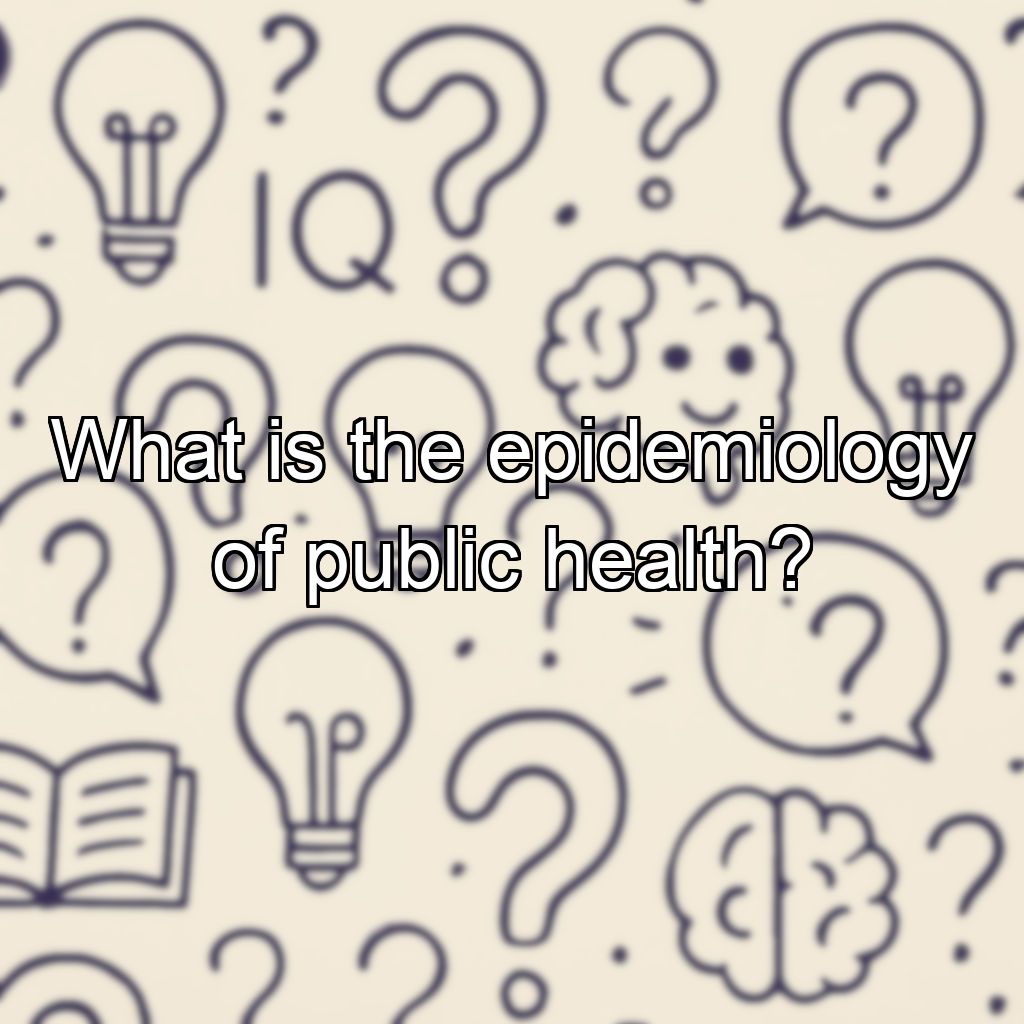What is the epidemiology of public health?

Epidemiology in Public Health
Epidemiology is the branch of public health and medicine that studies the distribution and determinants of health-related states or events (including diseases) in specific populations. Its primary aim is to control health problems and improve population health.
Main Concepts
- Distribution: Examines patterns of disease occurrence, including frequency, geographic location, age, gender, and other demographic factors.
- Determinants: Identifies the causes and risk factors that influence health outcomes, such as biological, environmental, social, and behavioral factors.
- Population Focus: Epidemiology looks at groups and communities rather than individual patients, making it essential for public health planning and policy.
- Application: Provides evidence for preventive measures, health promotion, disease surveillance, and outbreak investigation.
Key Roles in Public Health
- Identifying Risk Factors: Helps to recognize what contributes to illnesses and injuries in communities.
- Guiding Interventions: Informs the design and evaluation of public health programs and policies.
- Tracking Disease Trends: Monitors the incidence and prevalence of diseases to detect changes or outbreaks.
- Evaluating Outcomes: Assesses the effectiveness of public health interventions and treatments.
Types of Epidemiological Studies
- Descriptive: Observes and describes patterns (who, where, when).
- Analytical: Tests hypotheses about causes (how, why).
- Experimental: Intervenes to study effects (e.g., clinical trials).
In summary, epidemiology is a foundational science of public health, providing the tools and evidence needed to protect and improve the health of populations.